So here’s the deal on CMA careers. You’re a new member of the IMA, have passed the CMA exam, fulfilled all of your CMA certification requirements, and are now officially a Certified Management Accountant.
You’ve buffed up your CMA resume and are eager to get networking to land your first post-CMA designated job.
But you’re stuck.
Stuck because you don’t really know what kind of certified management accounting careers are out there.
Sure you see job titles like Chief Financial Officer or Corporate Controller, but does that qualify you? Is this what is considered a CMA career?
Well wonder no more, because I am diving into all the CMA careers you will be able to explore now that you’ve earned your CMA certification.
In this article:
- Understanding Your New CMA Skillset
- CMA Career Paths
- How to Promote Yourself as a CMA
- CMA Careers and Opportunities by Industry
Originally published on July 19, 2019, this article was updated and republished on Nov 3rd, 2023
Understanding Your New CMA Skillset
CMA careers are highly diversified and as such, open the doors to so many new and exciting job opportunities after CMA certification.
What does a CMA do, exactly?
The role of Certified Management Accountants is to utilize their decision-making, planning, and performance management skills to provide expert advice and reporting. From there, they work to create and implement a financial strategy that will benefit their organization.
These strategic roles are a major difference between CPA and CMA careers and job positions.
There are six pillars of knowledge that you acquire on your journey to become a CMA that guides you toward your new CMA career. You may have seen these highlighted by the IMA, but if not, here they are:
- Strategy, Planning, and Performance: The ability to guide decisions, manage risk, and monitor performance.
- Reporting and Control: Being able to measure your organization’s performance against standards and regulations and report on your findings.
- Technology and Analytics: Knowing how to enhance organizational success by using relevant technology and analyzing data.
- Business Acumen and Operations: Functioning across many arenas to improve company-wide operations.
- Leadership: Stepping up and into a role that inspires and guides your team to achieve the goals of your organization.
- Professional Ethics and Values: Working with integrity, ethics, and legal compliance and demonstrating a professional attitude at all times.
Outside of these, there are a few personality traits good accountants share.
CMA Career Paths
Is CMA a good career? In most cases, yes. Becoming a CMA can provide you with solid six-figure earning power, a career with plenty of room for growth and advancement, and excellent job security thanks to a unique skill set that’s hard to come by. As AI (artificial intelligence) is changing accounting jobs, the CMA positions you as a leader with more opportunities than ever.
So you finally got your CMA results back, and you passed the exam. Congratulations!
Now that you’re certified, hunting for a job may not be as easy as reading “Hiring Certified Management Accountant – please apply!”
You need to know what job titles to look for and from there, decide if their job duties are in line with how you picture advancing your CMA career.
Note that the following salary figures do not include the impact of the CMA. According to a recent survey by the Association of Accountants and Financial Professionals in Business, the median base salary for those holding a CMA is 58% higher than that of a non-CMA. So, CMAs can expect to earn significantly and have the leverage to negotiate their salaries further than their non-CMA peers.
Here are a few of the most common accounting career paths after CMA that you can apply for:
- Financial Analyst
- Cost Accountant
- Accounting Manager
- Senior Accountant
- Corporate Controller
- Chief Financial Officer (CFO)
Financial Analyst
If you enjoy studying market trends and the microeconomic aspects of finances, then becoming a financial analyst may be right for you.
This role requires careful attention to detail so the analyst can assess the financial condition of a potential investment to make sure it is worthwhile.
Some other typical job duties for a financial analyst include advising businesses on how to issue corporate bonds or split stock, as well as performing financial research and analysis to provide information on the business’s profitability, stability, liquidity, and solvency.
As a financial analyst, you can work anywhere from a bank or an insurance company to a startup or global enterprise.
Financial Analyst Top Responsibilities
Financial analysts assess an organization’s financial performance and provide insights to support decision-making. They analyze financial data, create financial models, and make recommendations for investments, budgeting, and risk management. Financial analysts also monitor market trends and evaluate the financial health of the company.
Average Financial Analyst Salary
The average financial analyst in the U.S. is paid $68,250 annually. This translates to just over $32.81 per hour. Of the financial analysts surveyed, the lowest salary was $48,945 annually, while the highest was $121,875.
Cost Accountant
Cost accountants are responsible for recording and analyzing each cost incurred by a business. In turn, they use this information to identify where the company is losing money unnecessarily and how to improve its financial management.
Some of the everyday job duties of a cost accountant include preparing asset, liability, and capital account entries, documenting financial transactions, and making financial recommendations based on the analysis of financial history.
As you can imagine, this role could be highly beneficial in several business models, so, unsurprisingly, cost accountants can be found working with retail sectors, consulting firms, or directly within a business or corporation.
Cost Accountant Top Responsibilities
Cost accountants focus on tracking and analyzing costs related to production, products, or services. They calculate and allocate expenses, perform cost analyses, and assist in pricing decisions. Cost accountants play a key role in optimizing cost structures and ensuring efficient resource allocation.
Average Cost Accountant Salary
The average cost accountant in the U.S. is paid $77,500 annually. This translates to $37.26 hourly. Of the cost accountants surveyed, the lowest was paid $65,000 annually, while the highest was paid $95,000.
Accounting Manager
Accounting Managers develop and maintain accounting systems and procedures used by other accountants to collect and analyze data.
Typical job duties would include overseeing daily operations, monitoring and analyzing data, creating financial statements and reports, as well as upholding strict accounting policies and principles.
Accounting managers oversee other accountants and are typically found working for large companies or organizations where there are multiple accountants employed.
Accounting Manager Top Responsibilities
Accounting managers oversee the daily operations of the accounting department. They are responsible for financial reporting, maintaining internal controls, and ensuring compliance with accounting standards and regulations. They may also manage a team of accountants and guide financial strategy and decision-making.
Average Accounting Manager Salary
The average salary for an accounting manager is $95,000 in the U.S. That is approximately $45.67 hourly. Accounting managers typically start at $75,000 annually and can earn as much as $126,684 annually later in their careers.
Staff & Senior Accountant
Senior accountants are more managerial than junior or staff accountants and do not typically perform administrative tasks. Instead, they are responsible for reporting cost margins, productivity, and expenditures within a company.
Some common tasks include preparing month-end procedures, reconciling accountant balances, and maintaining a general ledger. In addition to this, senior accountants are expected to mentor junior staff, as well as lead accounting initiatives with other accounting teams and departments.
As you can imagine, to become a Senior Accountant you must have not only expert management accounting skills, but also years of experience, great communication skills, and strong leadership skills.
Staff & Senior Accountant Top Responsibilities
Staff and senior accountants handle complex accounting tasks and financial analysis. They prepare financial statements, conduct audits, and ensure the accuracy of financial records. They may also be involved in reconciling accounts, supporting budgeting processes, and providing financial guidance to management.
Average Staff & Senior Accountant Salary
The average accountant is paid $59,186 annually. This translates to $28.45 per hour. Entry-level staff accountants can expect to earn a starting salary of $50,000 annually, while senior staff accountants can earn as much as $73,755.
Corporate Controller
A corporate controller is someone who oversees a company’s financial and accounting functions. This includes everything from billing, accounts payable, accounts receivable, and budgeting, to name a few.
In fact, when I first began working on my own business, I was working full-time as a Corporate Controller and working nights and weekends to turn this dream into a reality!
Common job duties include preparing the annual budget, preparing internal and external financial statements, assessing current accounting operations, as well as coordinating activities for external auditors.
Corporate controllers often oversee other accountants, so the skills and knowledge learned from earning your CMA are invaluable.
While the expertise of a controller can be utilized in any business, it is larger companies and organizations that tend to attract this position more.
Corporate Controller Top Responsibilities
Corporate controllers are responsible for the overall financial management of an organization. They oversee accounting functions, financial reporting, and internal controls. Controllers ensure compliance with financial regulations, manage audits, and provide strategic financial guidance to senior management.
Average Corporate Controller Salary
The average corporate controller earns $144,969 annually in the U.S. That is $69.70 hourly. Starting salaries for corporate controllers begin at $119,861, but more senior employees in this position can earn $193,628 annually.
If this position interests you, read my dedicated guide to learn how to become a corporate controller.
Chief Financial Officer (CFO)
What is a CFO? It’s one of the top positions you can rise to in business and is often considered a CEO’s right hand.
CFOs oversee everything from financial reporting and forecasting to a company’s investments and financial business decisions.
Some of the most critical job duties performed by a CFO include tracking cash flow, analyzing their financial strengths and weaknesses, and proposing corrective actions.
It often takes years of experience to develop the unique skills required to become a Chief Financial Officer, but earning your CMA is absolutely the fast track.
Chief Financial Officer (CFO) Top Responsibilities
CFOs are the highest-ranking financial executives in an organization. They lead the financial strategy, including budgeting, forecasting, and risk management. They manage the finance department, provide insights to optimize financial performance, and make recommendations for long-term financial planning. CFOs also interact with investors, stakeholders, and the board of directors to communicate the company’s financial health and strategy.
Average CFO Salary
The average Chief Financial Officer (CFO) earns $150,000 annually in the U.S. or $72.12 hourly. Of the CFOs surveyed, the lowest salary reported was $120,000, while the highest was $212,500.
How to Promote Yourself as a CMA
A lot of time and effort goes into studying for the CMA exam, passing it, fulfilling requirements, and the other logistics that go into launching your CMA career.
Even once you’ve checked all of the boxes, it’s important that you keep the momentum going and promote yourself as a CMA.
This is something you can start at any stage in the process (yes, even before you’ve passed the CMA). Here are the best ways to do it.
Get social on LinkedIn
Professional social media networking is a huge way to get more involved in your industry and establish yourself as an up-and-comer, or as a leader in the field. LinkedIn is one of the most popular ways to do this because it already caters to a professional audience.
You can use direct messaging, write articles, engage with hashtags, and connect with people already in your network on LinkedIn. A little effort, over time, can go a long way in setting yourself up for professional opportunities.
Continuously Update and Improve Your Resume
Work accomplishments, new projects, new roles, and even professional training or events are all things that may merit a spot on your resume. Be sure to add relevant experiences and keep the freshest recommendations.
By building that practice into your early professional life, you’ll always be ready to apply for a job or advocate for a promotion.
Network with peers, colleagues, and superiors
Living in a digital-first world has actually made this a lot easier. You may not even have to jump on a flight to attend an industry conference; it may be available via webinar or virtual event.
But, network you must.
Who you know goes a long way into who you can hit up in the future when you’re looking to expand your impact or make an employment change.
Learn to advocate for yourself
A new CMA is typically offered a standard salary and bonus structure, but that doesn’t mean you shouldn’t be ready to negotiate a new contract or ask for a raise. There will be strategic times throughout your CMA career when it’s important to do so. You can ask for bigger opportunities once you’ve earned them.
As a CMA, you have a lot of opportunities. If you lay the groundwork, you’ll be ready to take the right one when it comes along.
CMA Careers and Opportunities by Industry
As I mentioned above, there are many CMA career paths – from working with a multinational corporation or government agency to private business or academic institutions.
But what industries tend to draw in CMAs the most?
It turns out that more than 30% of CMAs work in Manufacturing, but the remaining 70% work in a variety of industries:
- 7% – Wholesale and Retail Trade
- 8% – Education
- 3% – Transportation, Communications, and Utility Services
- 3% – Contract Construction
- 2% – Agriculture, Forestry, and Fisheries
- 3% – Government
- 8% – Medical/Health Services
- 4% – Information Technology
- 9% – Finance, Insurance, and Real Estate
- 7% – Other Services
- 3% – Public Accounting
- 12% – Nonclassifiable
Source: 2019 IMA US Salary Survey
According to the 2019 IMA Salary Survey, CMAs are big earners. If your potential certified management accountant salary is influencing which industry to work towards, then have a look at the below chart:
Industry | Base Salary | Total Compensation | Count |
Educational Services | $98,000 | $104,000 | 129 |
Information Technology | $96,750 | $102,950 | 64 |
Medical/Health Services | $94,500 | $96,940 | 138 |
Contract Construction | $85,000 | $91,000 | 51 |
Transportation, Communication, and Utility Services | $94,500 | $99,026 | 56 |
Wholesale and Retail Trade | $98,000 | $106,000 | 109 |
Agriculture, Forestry, and Fisheries | $84,500 | $87,000 | 26 |
Public Accounting | $85,500 | $94,000 | 50 |
Nonclassifiable | $89,250 | $93,500 | 200 |
Finance, Insurance, and Real Estate | $91,000 | $101,000 | 151 |
Other Service | $90,000 | $93,500 | 111 |
Manufacturing | $100,000 | $112,500 | 496 |
Government | $90,000 | $91,750 | 52 |
Total | $94,000 | $102,000 | 1633 |
There are so many job opportunities for CMAs to choose from, which makes choosing a career exciting.
Whether you are hell-bent on becoming the CFO of a major corporation, or diving into the nitty-gritty as a Cost Accountant, the opportunities are abundant. If you’re still working on your certification, here are some strategies to help you pass the CMA on your first try.
If you’re ready to begin the journey toward a higher-paying career, check out our CMA review course. We provide all the support you need so you can pass the exam and secure your dream job.
Tell me, which of these CMA careers sounds most like your dream job? Drop me a line in the comment section below!
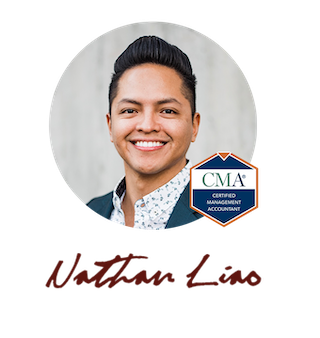
Hi, I’m Nathan Liao (aka the CMA Coach)! For the last 10 years, over 82,000 accounting and finance pros came knocking at my door seeking guidance and help. If you’re also aiming to conquer the CMA exam on your very first try—without wasting away time or money—you’ve found your ultimate guide. Dive in deeper to discover more about me and the dedicated team that powers CMA Exam Academy. Click here and let’s embark on this journey together!

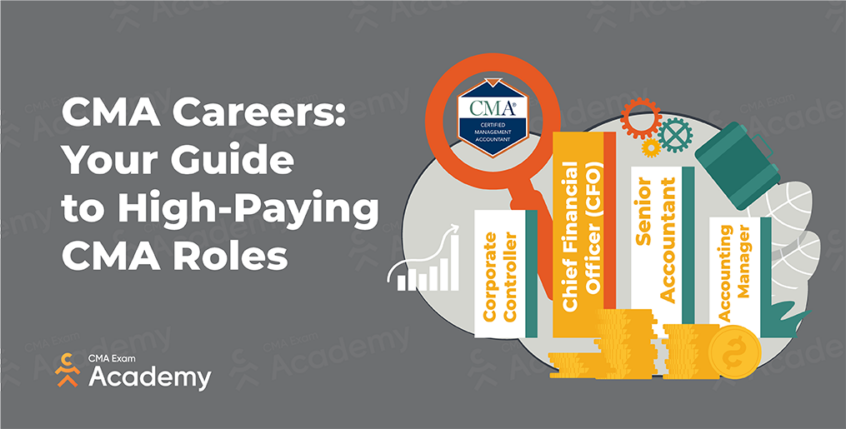
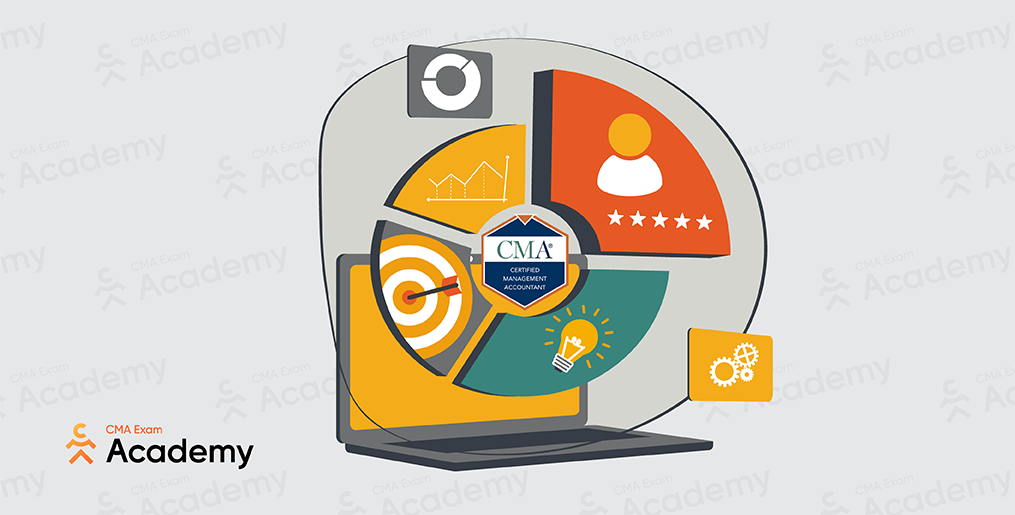
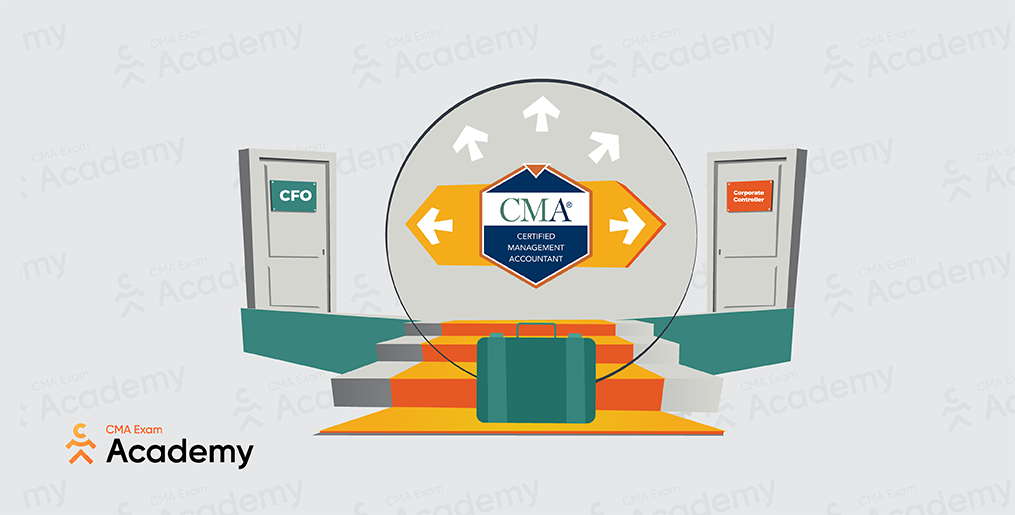

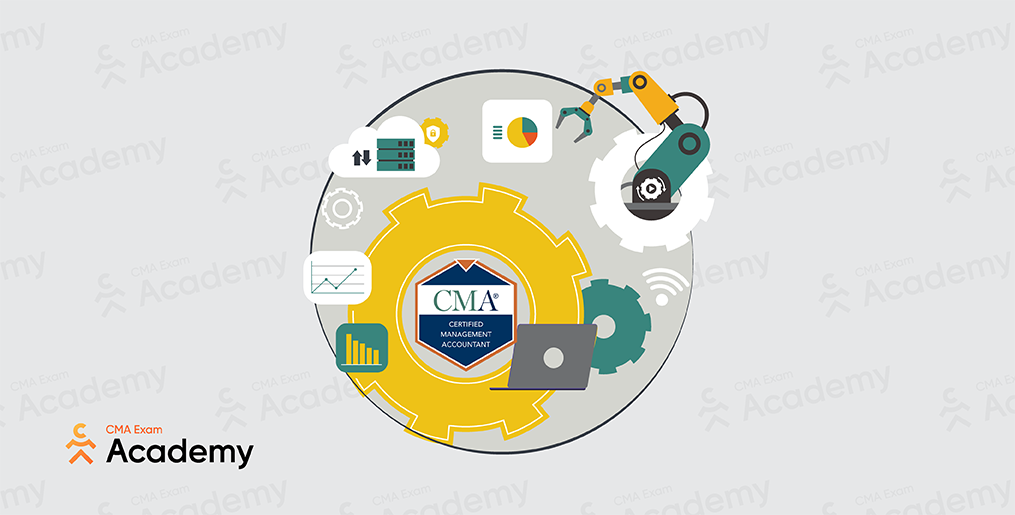

50 Comments on “CMA Careers: Your Guide to High-Paying CMA Roles”
Hi Nathan,
I am a student pursuing the US CMA certification. While I am aware about the CMA syllabus, I have a few questions related to the scope of US CMA certification,
1)Can a US CMA holder qualify for asset management or investment management roles at investment banks.
2)What according to you is the best job position to apply for, after completing CMA for a student with 0 work experience.
Thanks
Hello,
Thank you for your questions.
Keep in mind that to be eligible for the CMA certification, besides passing the exam for both parts, candidates need to fulfill both work and education requirements. For more info on the CMA requirements, I invite you to visit https://cmaexamacademy.com/cma-certification-requirements
The IMA offers all members the jobs.imanet.org platform where they can find and apply for jobs that are the best match for their skills.
Another useful professional development tool to help you map out your professional journey is Career Driver.
Hope this helps.
Hello Sir…. I am already an ACCA Member and planning to persue a further degree… I am confused between CMA India and CMA USA… Please guide
Thanks for your comment.
I currently help professionals with the US CMA credential.
To learn more about, here’s an article that breaks it down step by step: How to Become a CMA: 10 Steps to Getting Certified
I’m curious to know who are some notable CMA holders in Finance leadership roles within the sports and entertainment industry.
Hi Patrick,
I suggest you visit IMA’s Success Stories to read about CMAs from a variety of backgrounds.
Nathan
Hello Nathan!
I am a huge fan of yours and the CMA Academy! I am anticipating joining real soon, but I wanted to run a question by you. Unless, in the near future there are no longer testing windows, I was wondering whether to take one part each, (June 30th & Oct 31 testing date) or both parts at the same time (October 31st testing date), considering the 16 week study schedule of the CMA Academy and it cutting it real close to the June 30th window.
Thank you again and I hope to work with you soon!
Hi Erik,
I’m glad to hear you’re interested to pursue the CMA and we’d love to guide you through your journey!
My advice is to take one exam per window. The exams are hard, so it’s best to focus on one part at a time to increase your chances of passing in your first attempt.
If you start studying now and follow the weekly study plan, you’ll be ready for your first exam by early June and your second exam by the Sep/Oct exam window.
I look forward to seeing you in the Academy!
Hi, I’m working as an Accountant, but there is no improvement in my career and very low pay. So I decided to take a CMA course and just joined in an institute in Dubai. How this would help me. What can I do to complete this course in 6 months. Please help.
Hi Reesh,
Since you have already enrolled in a program, the best is to follow their study plan.
If you have any other questions, please don’t hesitate to reach out.
Nathan
Hello Nathan! Greetings from this side. I am in final year of B. Com and I would like to know that how US CMA certification can help me kick off my career as in investment banking at JP Morgan , Deutsche Bank or any other?
Hi Tanu,
CMAs are still in high demand and relatively low supply, and the banking industry is no exception.
Here is a podcast episode about how relevant the CMA designation is in the banking industry: https://cmaexamacademy.com/episode-15-the-rise-of-the-certified-management-accountant-in-the-banking-industry-2/
Hope this helps!
If you have any questions left, let me know.
Hii I m doing right now cma India and I m at my final level after completing of cma exam I want to settle in foreign country for the better life and exposure so can you please guide me which foreign degree is best suits with my cma India degree, actually I m thinking about the cima but you would help Me in this if there are better combination with my cma India degree
Thanks.
Payal, my understanding is that the India CMA is only recognized in India. The US CMA is recognized globally.
Hello, I am the CEO of a Joint Venture. I felt that finance is my weakness. My goal is to make better decisions in my current position. Also, when I have start ups in the future, I was hoping I can make better decisions. Would CMA suit me?
Absolutely, Elaine. Sounds like the CMA designation would be a fantastic fit for you.
You can learn more about the value of CMA and the roadmap to earning the certification at this link.
Thanks,
Nathan
Hi Nathan
How strongly would you recommend the CMA over the CPA for someone pursuing a career in FP&A? The traditional way to break into FP&A has been through Big 4 accounting, but I’d like to avoid that route and just cut right to the chase.
Hi Mchelle,
Financial Planning & Analysis is at the core of the CMA designation. CMAs are trained for this and other areas of business through its rigorous examination.
Hello sir, I’m in my 50years ,so how could that be possible for me
Hi Sangita, the CMA would help tremendously if you want to stay competitive in the management accounting field and continue advancing your career.
Hey
I am now a 11th std Commerce student aspiring to become a Financial Controller in US. So I googled about how to become a controller and what I got to know from some sites is that I should go for CPA and some others says I can become a Controller with a CMA USA certificatation. So can you exactly tell me which certification I need to become a financial Controller? Can I become a Controller with a CMA USA certification?
Hi Diya,
Absolutely. The CMA would be the fast-track to a Controller position.
Thanks,
Nathan
Hello sir,
I m pursuing CMA India.
Hello sir,
I read your blog, and I found it very interesting but I have some doubts. I passed my 10+2 this year and decided to complete my graduation and course together so I gave the foundation exam of CMA. So after graduation what kind of job should I opt for as I have no experience?
I thought of going in the banking field before because I had no knowledge of these job opportunities but now that I read your blog it seems like there are more to this course.
Hi Muskan,
Are you pursuing the US CMA? I ask because there is no foundation level in the US CMA exam.
Thanks,
Nathan
Dear Nathan,
I wish to be a managment consultant at one of the big three consultancy firms. Is CMA a relevant qualification? I have a BCom(hons) in finance and am going to write part 2 exam in june of next year.
Thanks
Hi Rahul,
Yes, the CMA will give you the knowledge and skill set necessary to make financial decisions for a company.
Thanks,
Nathan
One question I did have is whether or not a CMA is able to prepare financial statements in the same way a CPA would?
Yes, a CMA is able to prepare financial statements too 🙂
Hello Sir,
I’m now a 12th student pursuing to become a Chief Financial Officer. When I googled it I got to know that the two certifications – ACCA and CMA will help you to become a CFO. I’m very much confused about which certification to choose. ACCA or CMA? Which certification will help me to become a CFO faster? Can u help me out Nathan?
Hi Rolin,
For a management accounting role like the CFO, the CMA would fit you best.
Thanks,
Nathan
IS the CMA Certificate common with VP of Finance or VP of Business Development?.
Yes, it is! CMAs have the expertise necessary to excel at those jobs.
Hi Nathan,
Huge fan of what you do! I’m considering joining the CMA exam academy. However just wanted to check if a CMA certification will help me land a job in a venture capital Industry?
Thanks in Advance!
Alen.
Hi Alen,
That’s so great to hear! Thank you. I’d love the opportunity to coach you to exam success 🙂
The CMA would be perfect for that career path. It will equip you with the knowledge and skills necessary to land a job in venture capital and excel in the industry.
Let me know if you have any other questions.
Thank you,
Nathan
Hi Nathan,
Can a Fresh Graduate with a CMA degree get a position in Assurane or is that only for CPA / CA holders?
The Blogs amazing, many young CMA aspirants read it.
Hi Annet, the only way to find out is by applying for the job if you meet the requirements listed in the job posting.
Thank you for reading the blog 🙂
Greetings Sir..
I hope you are doing well
I want to know that, I am working on a bank for last 5 years, is my current job experience can consider for two years work experience after CMA , to get degree of CMA.
Hi Ashish,
Whether or not your work experience qualifies for the CMA depends on your job title and if you performed tasks that involved internal or external auditing or analysis, handling financial statements, and if you were responsible for analyzing and reporting on financial investments.
You can read here more about the work experience requirement and how to fulfill it.
Let me know if you have any questions.
Thanks,
Nathan
Sir I’m anusha presently I’m pursuing my degree with CA I additionally applied to CMA from college I’m writing the exam of CA this year from the state of telangana so I need a guidence from you my query is that I want to have a pleasant career with the company of Google so please do suggest me a way to have a good positioned job in Google through the professional course CMA I mean what are all needed to have it
Hi Anusha,
I’m not very familiar with Google’s hiring process, unfortunately. Maybe this link can help?
Hello Nathan,
I’m working as an Assistant Engineer in a Construction and Manufacturing Firm , and I’m planning on applying for the CMA certification as I want to jump from the groundwork to a better office job. Would you be kind enough to tell me if my experience working as an A.E in a construction firm hold any experience when I later apply for a post with my CMA certification?
Hi Donald,
It’s best to reach out directly to the IMA to verify if your work experience meets the requirement for the CMA certification – they have the last say in that.
Even if it doesn’t, you can still take the CMA exam and fulfill the experience requirement within 7 years after passing the exam to earn your certification.
Thanks,
Nathan
Hi Nathan،
Thank you for the valuable information.
I have over 7 years of experience as an accountant and a bachelor’s degree but no official certifications. I am working on my CMA now.
Do you think it’s a good idea to start now? I honestly never could do it before because of financial reasons.
Hi Iman,
It’s never too late to earn the CMA and give your career a boost 🙂
Check out my YouTube video to help you decide whether the CMA certification is worth it for you.
Thanks,
Nathan
Dear Nathan,
I am a senior in Accounting major.
CMA sounds really attractive.
Can I still pursue this certificate with my current major?
Hi Gyu,
Of course you can! Here’s a complete roadmap to becoming a CMA.
If you have any other questions, just hit reply 🙂
Thanks,
Nathan
Hi Nathan,
I am Shankar from India. You have a nice blog there. It has a lot of information which motivated me to study for the CMA exam.
I cleared my Part 2 in the month of September 2019 and written my Part 1 on Jan 2020. It would take 30 more days for my result to come. I have no experience yet and am just visiting my sister’s company to have a corporate exposure.
I don’t know what position I can apply as a person without work experience (I have a BBA in finance) who’s just starting out. I would like to know your ideas?
Hi Shankar,
I’m glad to hear you’re enjoying my blog. And big congrats on passing Part 1 exam!
A few positions to apply could be Jr. Accountant, Staff Accountant, or even entry level A/R and A/P to gain some experience.
But by having the CMA, you won’t stay long in those positions as you’ll be able to move up faster.
Thanks,
Nathan
Nice to hear it from you, Nathan.
God bless 😉